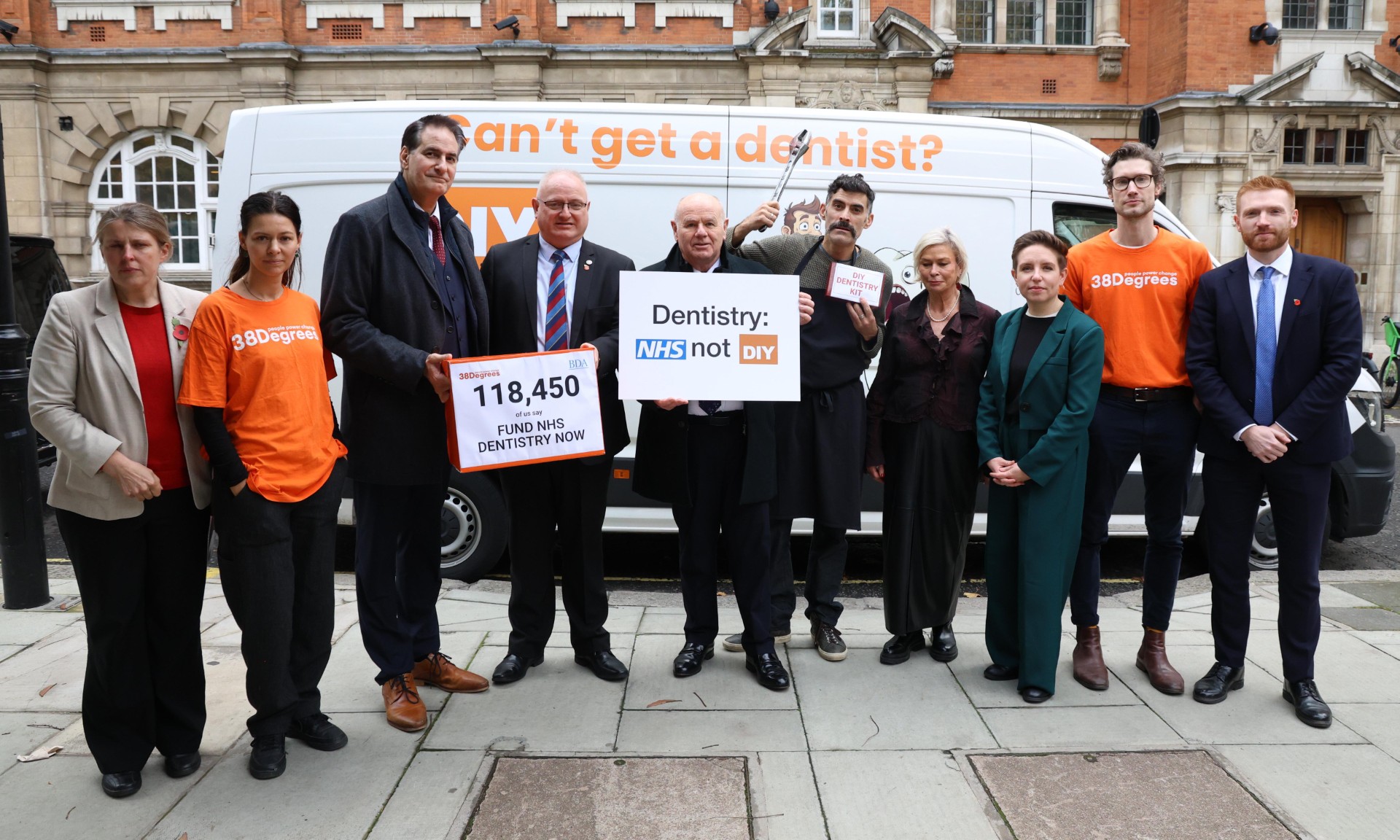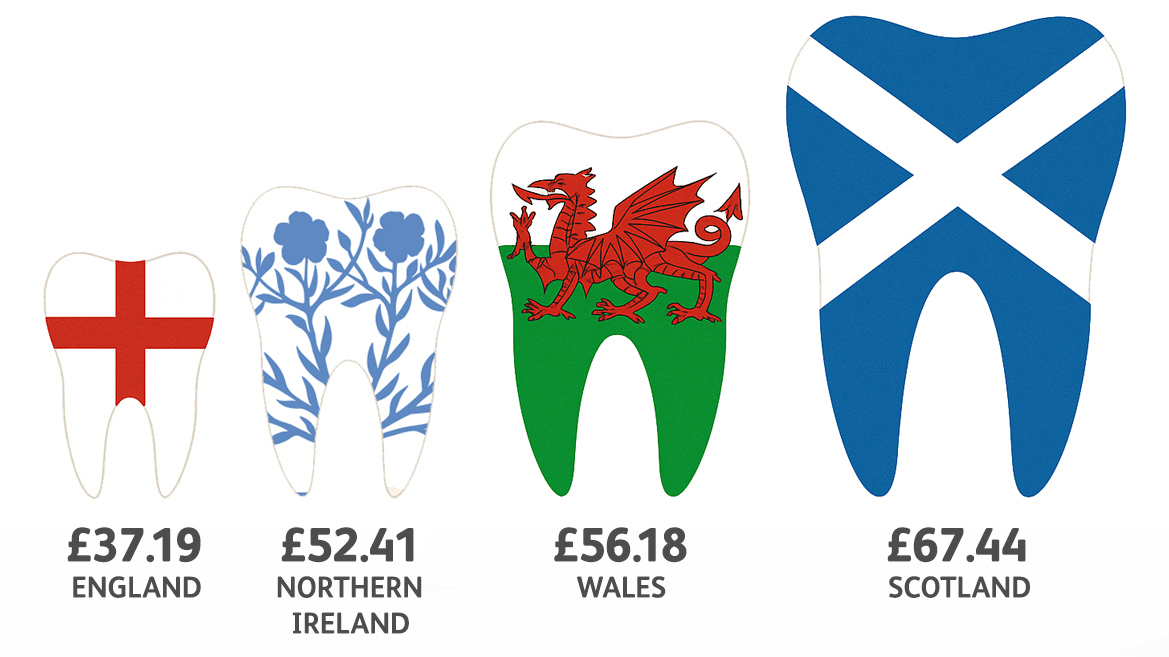
MPs and campaigners join us in Westminster to deliver a message to government. (Photo: 38 Degrees/Nigel Howard)
Reform is promised, but progress hinges on Ministers putting their money where their mouth is, says Eddie Crouch.
MPs and campaigners join us in Westminster to deliver a message to government. (Photo: 38 Degrees/Nigel Howard)
“There's not a shortage of dentists as far as I can see” says Linda Colla. “It's a shortage of funding for NHS patients. That's the problem.”
“Dentists know, they're not daft. They've got a business to run!”
I’ve heard the same from many dentists. The difference is while Linda is strictly speaking as a patient, she has treated one case: herself. As a ‘DIY’ dentist she removed her last few teeth after she struggled for seven years to access care.
What is reassuring is the wider public are hearing us. And I am proud to have delivered a petition for fair funding backed by over 120,000 people to the Government.
This year we have doubled down spelling out how underfunding and failed contracts have fuelled the crisis in dentistry. Reform is promised, but without new money it’s hard to see how access can be extended to the millions struggling to access care.
The Prime Minister can say he’s “determined to rebuild NHS dentistry.”
We welcome that, but to make it happen we need to see real commitment, and cash.
The Government’s own data shows that almost 14 million people – or well over 1 in 4 of England’s adult population – remain unable to access NHS dental care.
We’ve long observed that this crisis was made in Westminster. And it can only be solved in Westminster.
In large part it’s a result of group think at the Treasury. The 2006 contract ended the great unknown for bean-counters on what they needed to allocate to our budgets. Dentistry ceased to be a demand-led service, and through capped commissioning became a very different beast.
The fact there isn’t enough dentistry to go round is not a mistake, but a choice you can thank Treasury accountants for.
But after the financial crash and austerity this model was turbo charged, and where Westminster has carved a singular path.
Yes, we’ve experienced savage real-terms cuts. But no other part of the NHS went into the pandemic with less government money behind it – in cash terms – than it had in 2010. Back then each UK nation put in roughly the same amount per head of population to cover dental care. A conscious choice not to keep pace with demand or inflation means England now puts in almost half less than Scotland.
Official contributions net of patient charges. Source: UK Government accounts and ONS midyear population estimates.
Reversing these cuts isn’t an optional extra. Whether it’s dentures or bridges this strategy means a typical practice is now delivering a wide range of NHS care at a loss. The Government has conducted its own cost of service exercise – which we’ve wholeheartedly supported – but now is the time to publish the results, and to act on its conclusions.
Because as patients like Linda have recognised, no business can operate like this.
DIY dentistry is a stain on the nation. It’s not Dickensian – it’s medieval.
When we delivered our petition, we also left the Health Secretary with a DIY dentistry starter kit. String, pliers, painkillers, even a mini bottle of gin.
It’s not a satirical vision of the future, but a reflection of where too many have found themselves in 2025. This recipe has been spelled out to us by numerous desperate patients like Linda who felt they had no other option but to take matters into their own hands.
‘DIY’ or NHS? It’s a tossup on where this service could end up if government fail to deliver.
We are not naive. We know the public finances are tight. But £1.5bn would be sufficient to put NHS dentistry back on the rails. And pressed directly on our calls the Health Secretary told the media our challenge was “not unfair.”
We can consign these horrific scenes to history. This isn’t about creating a utopian service, or undermining thousands of practices already delivering high quality private care.
We’ve examined the Government’s own numbers, and this is what it would take to meet the unmet need for NHS dentistry.
Patients are facing down both cost of living and access crises. Polling from our friends at 38 Degrees indicates that over the last year a third of people said it was ‘often’ harder to get dental care because of fees.
Those patients avoiding care or making impossible choices deserve proper funding.
This is small change that can make a big difference. Not just to patients and practitioners, but to any government willing to deliver real change.
